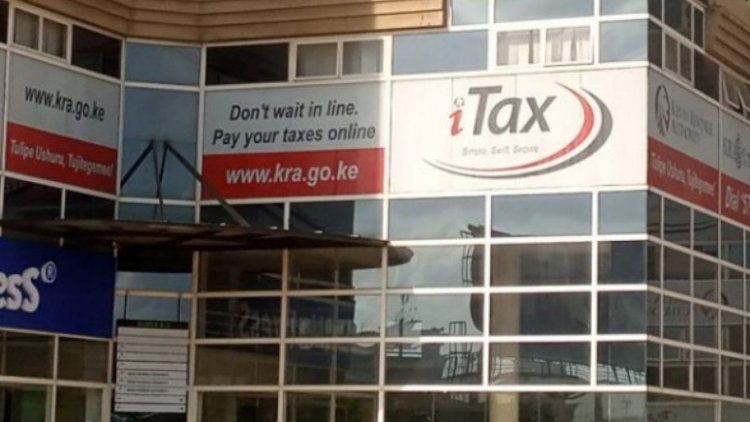5 Taxes Kenyans Will Pay In 2023
January is thus expected to be a very tough month for many, despite a report released by the Kenya National Bureau of Statistics (KNBS) on...

Kenyans including those who own businesses have a huge plate of tax increases waiting for them as depicted in part of the 2022 Finance Act.
January is thus expected to be a very tough month for many, despite a report released by the Kenya National Bureau of Statistics (KNBS) on Friday, December 30, 2022, indicating that the inflation against the consumer price index dropped for a second consecutive month. In December, the rate dipped to 9.1 from 9.4 in November.
Inflation in December was driven by the increase in prices of food and non-alcoholic beverages, transport, housing, water, electricity, gas and other fuels, according to KNBS. This has however not stopped Kenyans from putting pressure on President William Ruto to reduce the cost of living as per his pre-election promises.

With the government operating on very scarce revenues on Kenya Revenue Authority (KRA) and an economy depleted from the previous government, it has had to pressure KRA to impose the following tax measures:
20 Per Cent Excise Tax
The 20 per cent excise tax on transactions between mobile wallets and banks is one that will hit Kenyans where it truly hurts.
This is after the Central Bank of Kenya (CBK) announced that it reintroduced charges for transactions between mobile money and bank accounts, more than two years after they were waived in the wake of the COVID-19 pandemic.
The charges were waived on March 16, 2020, as part of the emergency measures to facilitate the use of mobile money in the context of the COVID-19 (Coronavirus) pandemic. They are however significantly lower than those that applied before.
At the same time, banks had stealthily introduced the excise tax to their customers, with some of them notifying the customers of the new changes.
"Dear Customer, we wish to advise that following the lifting of Covid-19 relief measures on mobile transaction fees by the CBK, effective January 1, 2023, the usual mobile money transfer fees will apply on transfers from account to mobile money. The charges range from Ksh11 - Ksh70 for transactions above Sh100 plus 20 per cent excise duty,” read a text message from a local bank.
However, other banks have gone to the extent of charging customers for credit or debit alerts. One of them sparked an uproar on social media on Wednesday, January 4 after revealing it charges Ksh42 per alert.
16 Per Cent Value Added Tax (VAT)
Kenyans using various online streaming services such as movies and music will also be hit hard by introducing a standard 16 per cent Value Added Tax (VAT) on electronically supplied services. This followed a move by KRA targeting multinational firms and online service providers to increase the tax base.
This means that you will have to pay more to enjoy some of the premium services on offer. Other online services targeted by VAT include e-books and videoconferencing.
1 per cent gross turnover minimum tax
KRA on Tuesday, January 3 moved to the Supreme Court to challenge a decision by the High Court to declare the minimum tax subjected to businesses unconstitutional.
The tax authority had filed a notice of appeal declaring an intention to challenge a decision by the Court of Appeal to uphold an earlier ruling. On December 2, 2022, the Court of Appeal upheld Justice Odunga's September 2021 decision quashing Section 12D of the Income Tax Act introducing a 1.0% tax on turnover.
The minimum tax is a flat tax that applies to companies that have a turnover of less than Ksh5 million per year. It was proposed to ensure that all companies contribute to the country's tax base, even if they are not profitable or have low profits.
According to KRA, the minimum tax is based on gross turnover and not gains or profits, and all businesses, even those in a loss-making position, are required to pay.
15 Per Cent Capital Gains Tax
The Finance Act of 2022 amended the Income Tax Act (ITA), by increasing the rate of capital gains tax (CGT) from 5 per cent to 15 per cent, which took effect on January 1, 2023.
The Capital Gains Tax (CGT) applies to the sale or transfer of property located in Kenya that was acquired on or after January 2015. This tax is charged not only when a property is sold for money, but also when it is exchanged, conveyed, given away, or disposed of in any other way, including through destruction, abandonment, surrender, cancellation, or forfeiture.
CGT is levied on any change of ownership of a Kenyan property, regardless of whether or not any money is exchanged in the process.
15 per cent Withholding Tax
Foreign traders that benefit when local companies hedge for raw materials they procure from the global market, and which are susceptible to price fluctuations, will also start paying a withholding tax (WHT) of 15 per cent.
WHT is levied at varying rates (three per cent to 25 per cent) on a range of payments to residents and non-residents.
A person making certain payments deducts tax, at the applicable rate, and remits the tax to the Commissioner on behalf of the recipient. Examples of prices subject to withholding tax include, among others:
- Management, professional or training fees
- Consultancy fees, Legal fees, Audit fees
- Contractual fees
- Winnings
- Appearance at or performance to entertain
- Royalties
- Interest and deemed interest
- Dividends

A wines and spirits shop in Nairobi. /FILE
"Withholding tax is final when deducted in relation to a payment made to a non-resident person with no permanent establishment in Kenya. With regard to payments to resident persons, withholding tax is a final tax when it relates to winnings, qualifying interest, qualifying dividends and pensions.
"In every other case, withholding tax is NOT a final tax. The taxpayer (payee) is required to declare their income(s) and the withholding tax details when filing their annual tax returns and to pay any balance of tax due," explains KRA in part.






